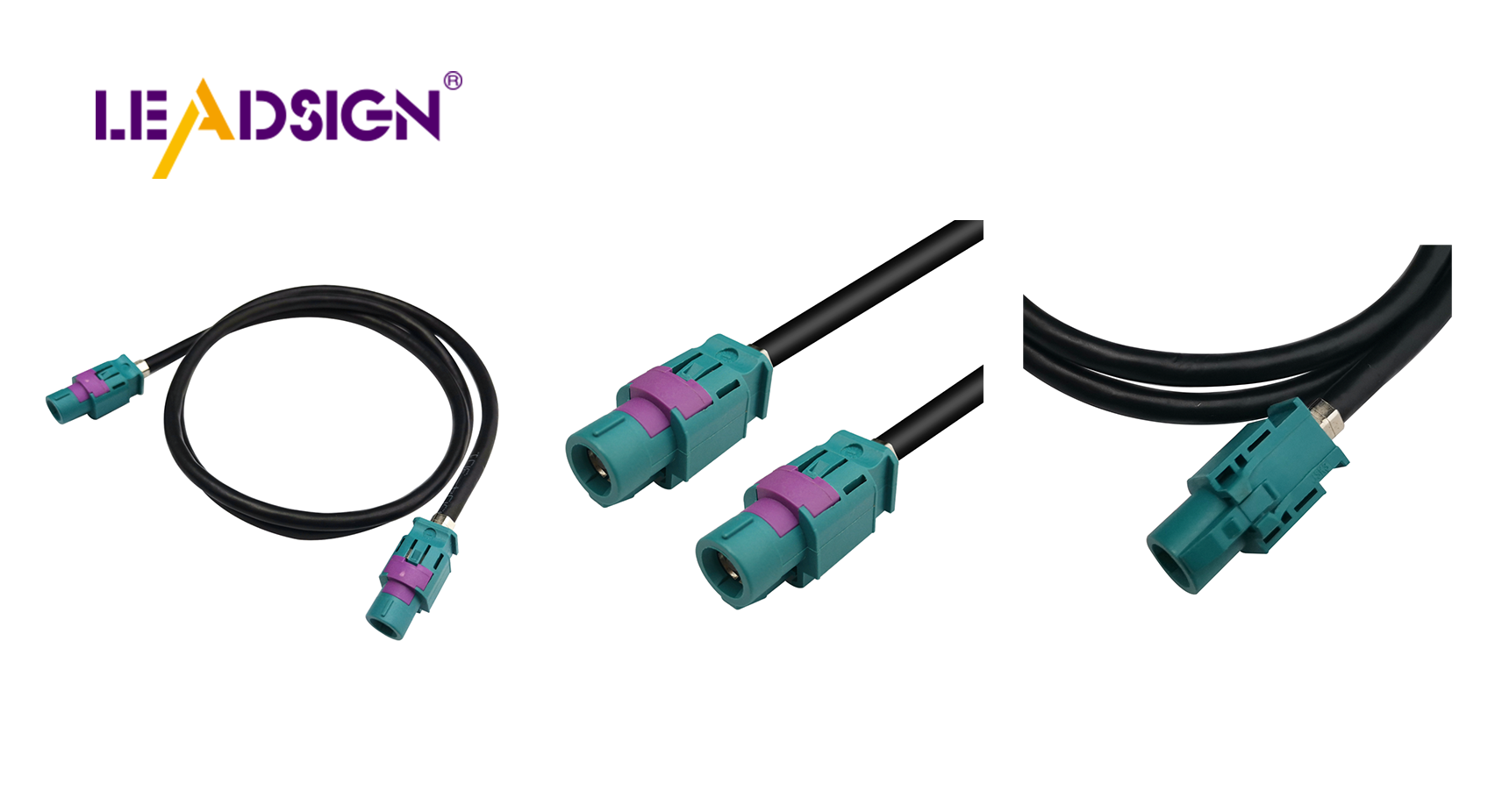Exploring the Role of Auto Electrical Connectors Plugs in Vehicles

Vehicle connectors are key to your car's electronics. They connect parts so the engine, sensors, and safety systems work. Today's vehicle connectors handle heat and shaking to function effectively. They are important for safety and making cars run efficiently.
Key Takeaways
Automotive electrical connectors are designed to withstand extreme temperatures and harsh conditions, ensuring reliable performance and safety in vehicles.
Choosing the right connector material—plastic for lightweight needs or metal for durability—can significantly impact your car's efficiency and reliability.
Understanding the different types of connectors, such as wire-to-wire and specialty connectors, is crucial for maintaining optimal functionality in your vehicle's systems.
Key Features and Benefits of Automotive Electrical Connectors
Strong and built for tough conditions
Car electrical connectors are made to handle tough environments. They work in very hot or cold temperatures, from -65°F to 200°F. They also resist water, rust, and physical damage. Many meet the USCAR-20 standard, proving they last a long time. Male connectors use metals like brass, while female ones stay tight with flexible parts.
To keep them safe, many connectors have locks and strain relief. These features stop them from coming loose due to shaking or bumps. High IP ratings, like IP67 or IP68, mean they block dust and water well. This toughness makes them very important for cars.
Steady power and signal flow
Car connectors keep systems connected and working smoothly. They send power and signals without fail, even in hard conditions. Special features like CPA and TPA help avoid mistakes during setup. A clicking sound tells you when they are securely connected.
These connectors are made to handle shaking, heat, and wetness. This keeps important systems, like the engine and entertainment, working. Without these strong connections, cars wouldn’t perform well.
Protection from water, dirt, and shaking
Car connectors are great at blocking harmful things. Silicone seals and grommets stop water and dirt from getting in. Many have IP68 ratings, meaning they are very good at keeping out water and dust.
To handle shaking, they have strong designs and anti-vibration parts. Crimping and sealing ribs add extra protection. These features make sure connectors work, even in tough situations.
Types of Automotive Connectors and Their Uses
Knowing the types of car connectors helps you see their importance. Each type has a job to keep car systems working well.
Wire-to-wire connectors for basic connections
Wire-to-wire connectors join two wires directly together. They are often used in cars to link devices easily. These connectors are great for setups that need to be taken apart often, like lights or temporary systems. They are simple to use and very flexible for general wiring needs.
Wire-to-board connectors for circuit boards
Wire-to-board connectors link wires to circuit boards (PCBs). They create strong connections, which are important for stable car systems. In advanced systems like ADAS, they send sensor data to improve safety. These connectors are found in control units and circuit boards, keeping them reliable in tough conditions.
They keep important systems working steadily.
They help control units perform well by staying consistent.
They are a key part of modern car connectors.
Specialty connectors for specific car systems
Specialty connectors are made for certain car systems like engines, lights, and entertainment. For example, high-speed connectors send data quickly for infotainment systems. They also handle signals for cameras and USB ports. Their strong design meets the special needs of cars.
These connectors improve how car systems work. Whether it’s running the engine or playing music, they help your car function smoothly.
Picking the Best Connector for Your Car
Choosing between plastic and metal materials
When picking car connectors, think about plastic or metal. Plastic ones are light and cheap, good for simple uses. They don’t rust, so they last longer. Cars needing less weight use plastic to save fuel.
Metal connectors are stronger and handle tough jobs better. They block electric interference and work well with high power. Metal also resists rust and carries electricity better. For rough conditions, metal connectors are more dependable.
Picking the right size and fit
Connectors must match your car’s system perfectly. Wrong sizes can cause bad connections or failures. Think about your car’s wiring and space when choosing.
Handling tough conditions
Car connectors need to survive extreme weather and liquids. Look for ones rated IP67 or IP68 to block dust and water. Materials like nylon protect against harsh environments. Good seals keep them working in wet or dirty places.
Tip: Always check your car’s needs to pick safe connectors.
Car electrical connectors are important for safety and performance. They keep systems like brakes and airbags working properly. Good connectors stop problems and make cars safer and more efficient. Picking the right connector is very important. Think about power, voltage, and the environment when choosing.
To get help, learn about different connector types and their features. Knowing your car’s electrical and mechanical needs helps you choose wisely. Look at options or ask experts to find the best connectors for your car.
Tip: The right car connectors keep your vehicle reliable and working well.
FAQ
What do car electrical connectors do?
Car electrical connectors join different parts of a vehicle. They help send power and data to things like sensors, lights, and screens.
How can I pick the right connector for my car?
Think about the material, size, and where it will be used. Choose one that fits your car’s system for safety and good performance.
Why are fast connectors needed in cars?
Fast connectors send data quickly. They help systems like cameras, USB ports, and screens work smoothly for better driving.
See Also
Discovering Advantages of Fakra Connectors in Vehicles
Boosting Data Transfer: Significance of Fast Automotive Connectors
Significance of Fakra Connectors in Today's Vehicles
Improving Automotive Data Flow: Cutting-Edge Connectors and Wires

